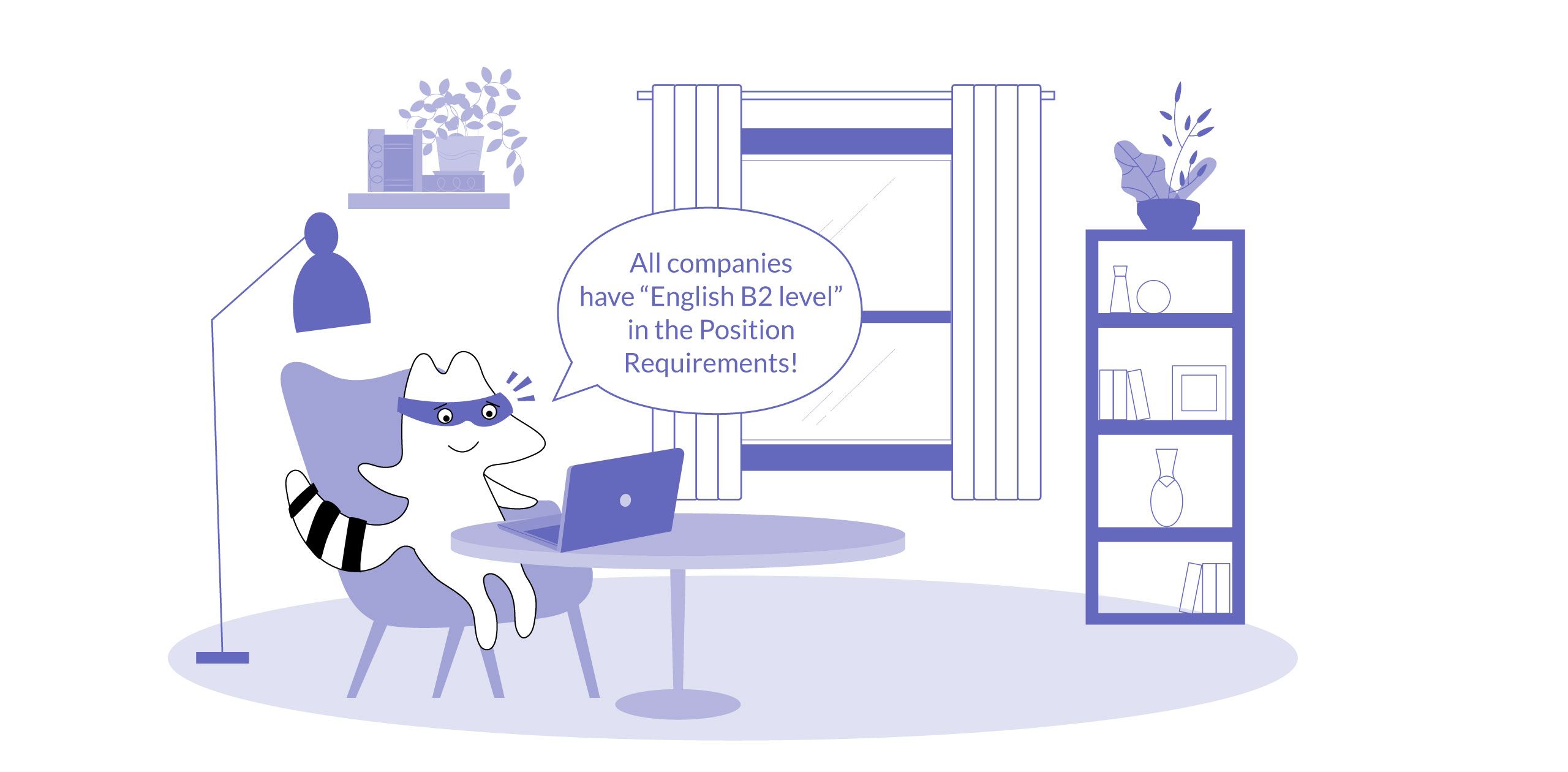
It’s safe to say that for the majority of us, the main goal of the language learning process is to communicate fluently and freely in a foreign language. And for many, speaking is the hardest of all the language skills to master, as it requires overcoming language barriers and expressing your thoughts on the spot.
However, with some effort and practice, it is definitely possible to improve your English speaking skills and become more confident when conversing in this beautiful language. Learning English speaking tips will allow you to facilitate this process. So, here are several tips that will help you boost your English speaking skills in no time:
Learn English with Langster
Find a Conversation Partner
One of the best ways to improve your speaking skills is to find a conversation partner. This could be a friend, family member, or even someone you meet online.
Having regular conversations in English with anyone will help you become more comfortable with the language and improve your fluency, but speaking with native English speakers will benefit you the most.
For instance, you can practice speaking for 15 minutes every day. You can talk about anything you want, from the news and weather to your favorite TV shows and video games. The important thing is that you are using English to communicate.
Join an English-Speaking Group or Class
Another great way to improve your speaking skills is to join an English-speaking group or class. There are many of these groups available, both online and offline. This is a great way to meet new people and work on your English fluency at the same time.
Another significant advantage of joining such a class is that there is usually an English teacher or mentor available. This person will be able to moderate and guide your conversation, ensuring that everyone’s on the same page.
If you’re not sure where to find an English-speaking group in real life, try looking online or asking at your local library. You can also check with your school or university to see if they offer any English conversation classes. Alternatively, you can also look for something that reflects your interests, such as a book club or a film discussion group.
Practice Self-Talk
Self-talk is a great speaking practice that will help you improve your English skills. Essentially, this practice is based on talking to yourself in English, either out loud or in your head. This may sound strange, but it’s actually a very effective way to master your second language.
When you self-talk, you force yourself to think in English and form sentences quickly. This is great practice if you don’t know any English speakers or just want to train yourself on using correct sentence structure or finding the right words when you need them.
To get started, try talking to yourself for a few minutes every day about anything that comes to mind. For example, you could reflect on your day, create a to-do list for tomorrow, or even retell a story. The important thing is that you are using English to express your thoughts.

Watch English Movies and TV Shows
Watching English movies and TV shows is a great way to improve your English vocabulary and pronunciation by picking up proper phrasing from native speakers. It’s also a fun way to learn about different cultures and accents.
To get the most out of this, try to watch shows with subtitles in English – nearly every online streaming platform has English subtitles available now, so this shouldn’t be a problem. This will help you understand the dialogue better.
Besides, this way, you can watch your favorite shows and see English grammar in action instead of doing dull vocabulary quizzes or watching kids-oriented educational videos.
Additionally, you can rewind and pause the show if you need to. For instance, you can pause the scene and try to practice speaking English fluently by repeating what you’ve just heard on the screen.
It would be best to start with something you’ve already seen in your native language. This way, you’ll be able to concentrate more on the language without worrying about the plot.
A traditional recommendation for beginning language learners is to watch Friends. If you’re stuck on what else to watch, try looking for recommendations online or asking your friends for suggestions.
Try Speech Shadowing
Speech shadowing is a great way to improve your pronunciation by imitating the sounds you hear. The idea is simple: you find a recording of a native English speaker (this could be anything from a podcast to a TV show) and repeat what they’re saying out loud, word for word.
This may seem difficult at first, but it’s actually a very effective way to learn proper pronunciation and intonation for the new vocabulary. It’s also a great way to improve your listening skills.
To get started, find a recording of a native English speaker that you like. Once you’ve found something, listen to it a couple of times, then hit play again, and start speaking along with the recording, repeating everything that you hear.
It’s important to try to mimic the speaker’s accent and intonation as much as possible. This will help your brain to better learn and remember the correct way to say each word and phrase.
Don’t worry if you can’t understand everything at first – just focus on imitating the sounds you hear. You can always go back and listen to the recording again later to try to catch anything you missed.
Keep in mind that this is a difficult activity, so don’t get discouraged if it’s tough at first. Just keep practicing, and you’ll gradually improve.

Read Books in English
This might seem counterintuitive, as reading is an activity based on keeping quiet. However, it really can help you enhance your English speaking skills. Not only will reading improve your grammar and vocabulary, but it will also provide you with a better understanding of how the language works in general.
Furthermore, by reading books in English, you’ll be exposed to different writing styles, which will help improve your own writing skills. As such, reading remains one of the best ways to boost your English skills in general.
However, it is important to remember that reading should be done for enjoyment and not as a chore. Try to find books that are interesting to you and at the right level. If you’re a beginner, look for books that have been written specifically for language learners. These books often have pictures, illustrations, or even translations to help explain the text.
A great option is to dive into the Harry Potter series – you likely know the basic story already, and as it unfolds and characters become older, the language of each book also advances.
However, if you’re already more advanced, try reading contemporary fiction or articles in English. Many online newspapers and magazines will have articles written in English, which is a great way to improve your reading comprehension while also staying up-to-date with current events.
Some classic novels that are often recommended for language learners include The Old Man and the Sea, To Kill a Mockingbird, and 1984. However, there is a multitude of other great books out there, so don’t feel limited to these three. For starters, you can check our dedicated post about the best books for English learners.
Also, don't neglect listening to audiobooks in English. This can be a great way to "read" while also improving your speaking and listening skills at once. Listening to spoken English will provide you with correct audio pronunciation of new English words and make the learning process more efficient, allowing you to speak confidently later on.
Another helpful technique to help you speak English fluently is to read out loud. This may feel silly at first, but it’s actually a great way to improve your pronunciation. As you read, pay close attention to how each word is pronounced and try to mimic the accent as best as you can.
You can also try recording yourself reading and then listen back to see if there are any areas where you need to improve.
Listen to English Podcasts
In addition to audiobooks, listening to English podcasts is also great for boosting your speaking skills. Besides, what’s great about podcasts is that they’re usually shorter, so you can fit them into your busy schedule more easily. For instance, you can listen to them while commuting, doing chores, or going grocery shopping.
Additionally, many podcasts are focused on specific topics, so you can choose ones that are interesting to you or expand your professional vocabulary. This is especially helpful if you’re learning English because you’re working in a multicultural environment and want to be able to talk to your colleagues or attend industry events.
So, if you’re looking for a fun and engaging way to improve your English skills, podcasts are definitely worth checking out. Here, you can check our selection of the best podcasts to learn English in a fun way.

Sing Along to Your Favorite Songs
Singing along to your favorite English songs is another great way to improve your speaking skills. Not only is it a fun activity, but it will also help improve your pronunciation and intonation.
When singing, pay close attention to how the words are pronounced. To make it easier, you can also look up the lyrics to your favorite songs online and read them as you listen to the song.
Additionally, singing is a great way to build up your confidence when speaking English. So, even if you’re feeling shy or self-conscious, belting out a few tunes can help you feel more confident in your abilities.
And, if you’re really feeling brave, you can even try singing karaoke in English. This is a great way to practice speaking in front of an audience and to get over any fears or nerves you have about speaking English in public.
So, take some time to explore different genres of music and find songs that you enjoy singing along to. It’s time to finally find out what your favorite tunes are about!
Build Up Your English Speaking Confidence
If you’re shy or self-conscious about your English speaking skills, it can be difficult to practice regularly. That’s why it’s important to work on building up your confidence. One way to do this is by practicing with a friend or family member who is also learning English. This way, you can help each other out and give each other feedback.
Additionally, you can join an English-speaking club or group. This is a great way to practice speaking English regularly in a relaxed and friendly environment.
Of course, it’s also important to give yourself credit for the real progress you’ve made. So, even if you don’t feel confident speaking English yet, remind yourself of how far you’ve come and of all the progress you’ve made.
And, as you continue to practice and improve your skills, your confidence will slowly start to increase. So, just keep at it, and don’t give up!
Don't Be Afraid to Make Mistakes
One of the biggest barriers to speaking English confidently is the fear of making mistakes. However, it’s important to remember that everyone makes mistakes, and there’s no reason to be afraid of them. Even native English speakers make mistakes!
In fact, making mistakes is actually a good thing! It shows that you’re trying new things and pushing yourself out of your comfort zone. So, instead of being afraid of making grammar errors, embrace them, and use them as an opportunity to learn. If you make a mistake, simply correct yourself and move on.
Of course, it’s also important to be patient with yourself. Learning a new language takes time, and you won’t become fluent overnight. So, be consistent, and keep practicing regularly.
Eventually, you’ll make progress, and you’ll start to feel more confident in your abilities. And, as your confidence starts to increase, so will your fluency.
The Bottom Line

So, if you want to improve your English speaking skills, be sure to practice regularly with a friend or family member, join an English-speaking group or club, and don’t be afraid to make mistakes. Remember that everyone makes mistakes, and there’s no need to be ashamed of them. Just keep practicing, and you will gradually see progress.
In addition, you can download our Langster app to learn English with stories, find new words and phrases, and memorize them with audio from native speakers. Using mobile apps is another great educational opportunity available online today. So, just keep at it, and don’t give up!









